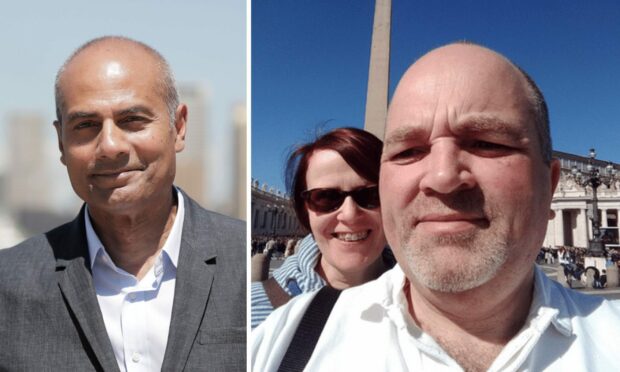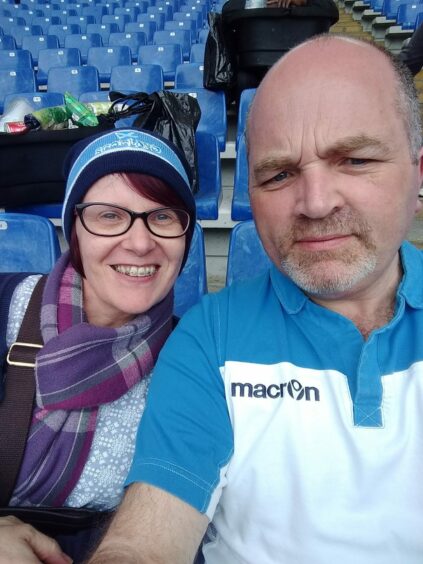The last Tweet by BBC news presenter George Alagiah before he died of bowel cancer this week was to encourage the use of NHS home-screening kits.
“I wish I’d had access to one of these kits when I was diagnosed nine years ago,” he wrote.
It was a message not lost on Iain Jack, who survived his own bowel cancer diagnosis largely because of the test kit.
“If I hadn’t had the test, I honestly don’t think I’d be here now,” says the Inverness man, 55.
It is now three years since Iain discovered he had stage three cancer thanks to the NHS faecal immunochemical test, which is able to test a simple stool sample.
He had none of the usual symptoms such as rectal bleeding and stomach cramps, so was shocked at the news.
“Apart from being extremely tired, I had no reason to believe I had cancer,” Iain says. “It was only the screening that picked it up.”
The difference between Scotland and England in screening ages
The test, which he took on his 52nd birthday, was the second he’d had sent through the post.
In Scotland, men and women are sent them every two years from their 50th birthdays.
In England, the starting age is 60, however moves are underway to bring it down to the same as north of the border.
Iain says he did the test “religiously” as soon they arrived, with the first screening uncovering no issues.
However, not everyone is as prudent as him.
According to a Public health Scotland study, uptake for the test stands at around 63%, even though figures show that people are 14 times more likely to survive if the cancer is caught early.
How George Alagiah tried to increase bowel cancer screenings
Upping the number of screenings was a focus for Alagiah before he died on Monday at the age of 67.
The Tweet at the top of this article was part of a promotion for the NHS and the faecal immunochemical test that Alagiah carried out as the face of bowel cancer screening.
Iain says he also wants to shout from the rooftops about the test, especially to men who may be more stubborn in taking it.
“As a male of the species, we tend to think we’ll be fine,” he says.
“But I do know people who haven’t done the test. And they’ve heard my story and they’ve actually done it. I want to make sure everybody does it.”
Meanwhile, Iain wants access to bowel cancer screening increased to people under 50.
“That’s the worst part,” he continues. “A lot of younger people get it as well, but there’s no testing for anyone at a younger age. It’s a bit of a grey area.”
How many people die from bowel cancer each year?
What is certain, though, is that bowel cancer is deadly.
It is the second most common cause of cancer death for both men and women with about 1,600 people dying of the disease in Scotland each year.
Alagiah is not the only well-known person to have died from it recently.
In June last year, Dame Deborah James, who co-hosted a popular BBC podcast about cancer called You, Me and the Big C, lost a six-year battle with the disease.
“It’s a killer,” says Iain, who remains in recovery from his brush with bowel cancer.
“Too many people die each year from bowel cancer.”
Bowel Cancer UK thanked Iain for speaking out on bowel cancer, and warned of the gap between screening ages in the UK.
“Our much-loved supporter George Alagiah often said that he wished he had access to these lifesaving tests when he was diagnosed nine years ago, and that if he had lived in Scotland his bowel cancer may have been picked up at an earlier stage,” says the charity’s head of policy & influencing, Gerard McMahon.
For more information on the NHS Scotland bowel cancer screening programme and how to claim a kit, click here.



